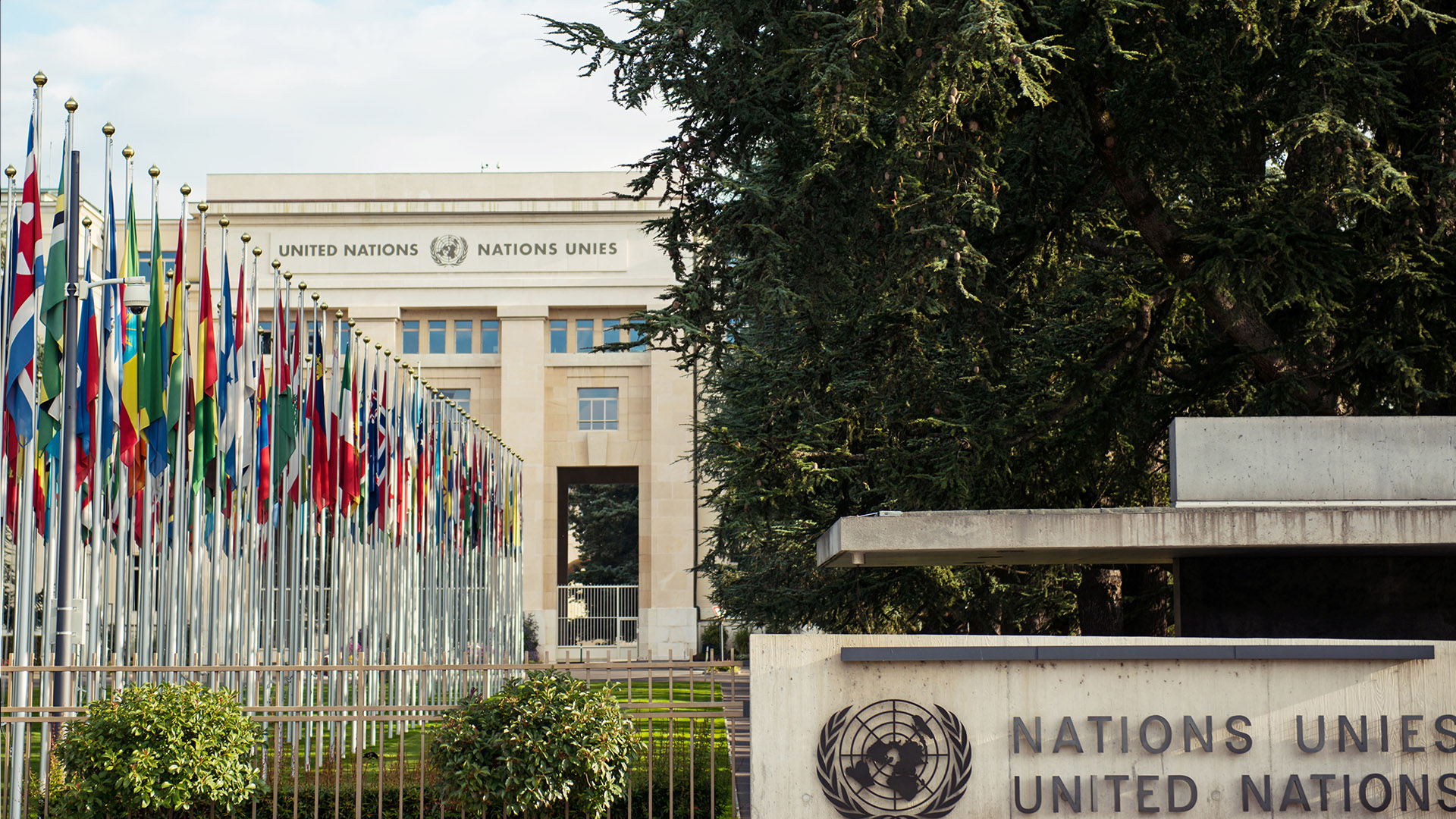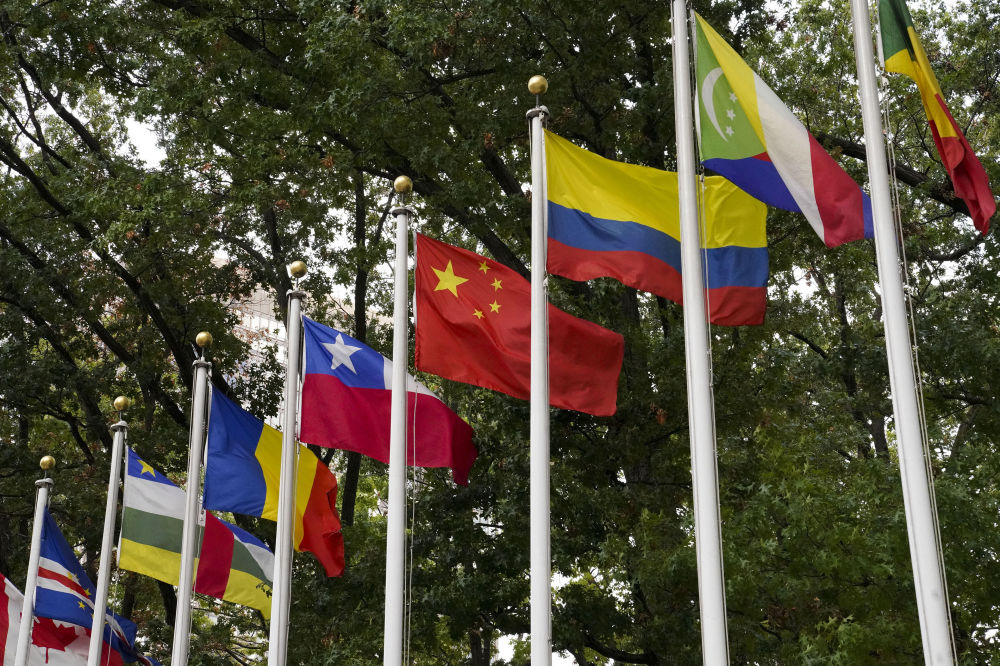
Editor's note: Bradley Blankenship is a Prague-based American journalist, political analyst and freelance reporter. The article reflects the author's opinions, not necessarily the views of CGTN.
Three quarters of a century on, the United Nations (UN) still fulfills the most important role in addressing issues of global concern. Especially now, as the coronavirus continues to ravage vulnerable countries and reappear in others, the importance of the common framework of the UN cannot be understated. This common framework, as noted in Article I of the UN Charter, envisages the multilateral pursuit of international peace and common prosperity.
Even as some nations, namely the United States, continue to ignore this framework and substitute its own opinions and those of its allies as the international consensus, the UN framework is irreplaceable in both its ambition and its actual ability to bring nations together.
"There is no other global organization with the legitimacy, convening power and normative impact of the United Nations," the declaration on the commemoration of the 75 anniversary of the UN notes.
This unmatched ability to facilitate dialogue gives the UN a special role in addressing not only the coronavirus, but the underlying problems that the virus has merely exacerbated. These are indeed serious challenges – the world has long known about the danger of climate change, threat of nuclear war, suffering caused by growing inequality and many more problems with no satisfying, multilateral effort to address them.
The shock of the coronavirus and its corresponding international mobilization could be seen as an important wakeup call for UN member states. As UN Secretary-General Antonio Guterres said in his remarks before the General Assembly on September 21, "It is now time to mobilize your resources, strengthen your efforts and show unprecedented political will and leadership, to ensure the future we want, and the United Nations we need."
The one major impediment to this much-needed international solidarity is the same that has existed since the UN's foundation – the actions of some powerful Member States that undermine the principles of the UN charter. And if we can allow ourselves to be frank, this includes the United States first and foremost.

Flags of United Nations Member States flutter in the wind outside the UN headquarters. /Xinhua
Flags of United Nations Member States flutter in the wind outside the UN headquarters. /Xinhua
Washington has continued to threaten multilateral institutions in an effort to promote its "America First" agenda that ironically falls short of the interests of the American people. Withdrawing from the World Health Organization (WHO), the Paris Climate Agreement, United Nations Human Rights Council and pulling out of the Joint Comprehensive Plan of Action (JCPOA) are all perfect examples of this reckless behavior that stands to corrode international cooperation on serious issues.
It must be noted that the American people themselves actually believe overwhelmingly in multilateral institutions and support diplomacy. A recent survey by the Eurasia Group Foundation published in September reveals that Americans flat-out disagree with the country's foreign policy direction.
The key findings of this study reveal that Americans favor a less militarized foreign policy, want to increase diplomatic engagement with the world, want less military intervention and that Americans are becoming more and more skeptical of so-called "American exceptionalism."
Of the previously mentioned international agreements and organizations, approximately 71 percent of Americans think the country should rejoin the Paris Climate Agreement, 66 percent said the country should rejoin the JCPOA and 71 percent said the country should rejoin the WHO.
The study said specifically on the issue of Iran, "41 percent of respondents believe President Trump's 'maximum pressure' strategy toward Iran has made the U.S. less safe, and only 28 percent believe the strategy has made the U.S. more safe."
This disconnection between public opinion and the foreign policy of the Trump administration is very clear. For example, on September 20, ironically the day before the UN's 75th anniversary special event, Washington snapped back UN sanctions against Iran despite the fact that it has no legal basis for doing so and the entire United Nations Security Council, save for the Dominican Republic, voted against this action.
This is a textbook example of unilateralism, i.e. the exact opposite of the basis of international law, and undermines the founding principles of the UN charter. But where Washington fails to lead in multilateral institutions and approaches that uphold these important principles, other nations are poised to pick up the slack because there lies a common interest in maintaining them.
Exactly as U.S. Secretary of State Mike Pompeo was tweeting about sanctions against Iran that undermine international peace on Monday, Chinese President Xi Jinping, who represents a nation constantly targeted by Pompeo, spoke at the UN. The juxtaposition between Washington and Beijing's approach to international affairs could not be clearer in this example.
In his remarks both on Monday and at the opening of the General Debate of the UN on Tuesday, Xi reiterated China's support for the central role of the UN and pledged support in reforming and developing the global governance system. He proposed four basic principles for the direction of global governance, saying the UN must stand firm for justice, uphold the rule of law, promote cooperation and focus on real action. He also highlighted profound engagement from China and the country's determination to join hands with other countries to tackle global challenges.
The world recognizes the need for multilateral now more than ever. But the choice for Washington is clear – conform to the will of the people and lead in multilateral institutions, or detach from the international order and allow more apt nations to take the lead. Despite the fact that the American public knows notoriously little about the outside world when compared to other countries, the natural inclination toward peace and diplomacy appears to be ubiquitous. Even if this sentiment is not matched in policy, nations such as China will easily fill the void left by a lack of American leadership.
(If you want to contribute and have specific expertise, please contact us at opinions@cgtn.com.)